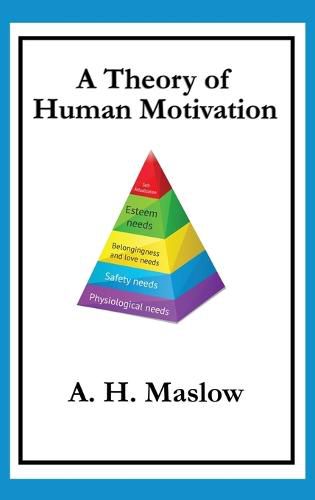Readings Newsletter
Become a Readings Member to make your shopping experience even easier.
Sign in or sign up for free!
You’re not far away from qualifying for FREE standard shipping within Australia
You’ve qualified for FREE standard shipping within Australia
The cart is loading…






This title is printed to order. This book may have been self-published. If so, we cannot guarantee the quality of the content. In the main most books will have gone through the editing process however some may not. We therefore suggest that you be aware of this before ordering this book. If in doubt check either the author or publisher’s details as we are unable to accept any returns unless they are faulty. Please contact us if you have any questions.
The present paper is an attempt to formulate a positive theory of motivation which will satisfy these theoretical demands and at the same time conform to the known facts, clinical and observational as well as experimental. It derives most directly, however, from clinical experience. This theory is, I think, in the functionalist tradition of James and Dewey, and is fused with the holism of Wertheimer, Goldstein, and Gestalt Psychology, and with the dynamicism of Freud and Adler. This fusion or synthesis may arbitrarily be called a ‘general-dynamic’ theory.
It is far easier to perceive and to criticize the aspects in motivation theory than to remedy them. Mostly this is because of the very serious lack of sound data in this area. I conceive this lack of sound facts to be due primarily to the absence of a valid theory of motivation. The present theory then must be considered to be a suggested program or framework for future research and must stand or fall, not so much on facts available or evidence presented, as upon researches to be done, researches suggested perhaps, by the questions raised in this paper.
$9.00 standard shipping within Australia
FREE standard shipping within Australia for orders over $100.00
Express & International shipping calculated at checkout
This title is printed to order. This book may have been self-published. If so, we cannot guarantee the quality of the content. In the main most books will have gone through the editing process however some may not. We therefore suggest that you be aware of this before ordering this book. If in doubt check either the author or publisher’s details as we are unable to accept any returns unless they are faulty. Please contact us if you have any questions.
The present paper is an attempt to formulate a positive theory of motivation which will satisfy these theoretical demands and at the same time conform to the known facts, clinical and observational as well as experimental. It derives most directly, however, from clinical experience. This theory is, I think, in the functionalist tradition of James and Dewey, and is fused with the holism of Wertheimer, Goldstein, and Gestalt Psychology, and with the dynamicism of Freud and Adler. This fusion or synthesis may arbitrarily be called a ‘general-dynamic’ theory.
It is far easier to perceive and to criticize the aspects in motivation theory than to remedy them. Mostly this is because of the very serious lack of sound data in this area. I conceive this lack of sound facts to be due primarily to the absence of a valid theory of motivation. The present theory then must be considered to be a suggested program or framework for future research and must stand or fall, not so much on facts available or evidence presented, as upon researches to be done, researches suggested perhaps, by the questions raised in this paper.